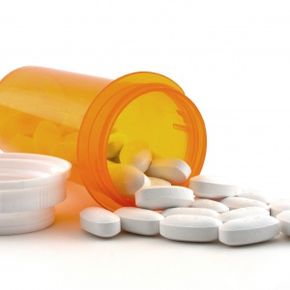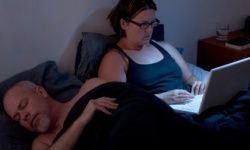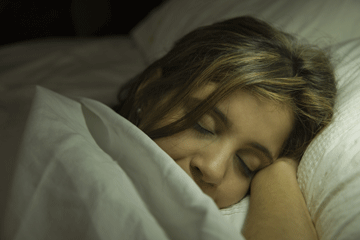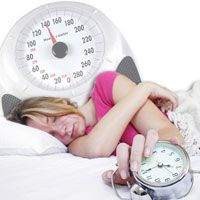If one can make broad generalizations about humanity based on a single life's view -- and of course one can't -- there appear to be two kinds of people in the world: Those who damn the world for interfering with their nine hours a night, and those who damn the body for being unsatisfied with four. (And then there are those who claim they function perfectly well on two, but according to sleep experts, they're just wrong.) Those who damn the body are in luck: Science is working hard to phase out the need for natural sleep.
Human beings have always found ways to ward off the effects of sleep deprivation. When you're getting about half of the sleep your body needs on a regular basis (and most of us need seven to eight hours a night), you need to find ways to function -- to wake yourself up, clear your mind, stop your head from falling into your salad during a business lunch. Caffeine and amphetamines (i.e. speed) are two of the most popular methods, but they're far from ideal. Both will keep you awake, but the side effects can be awful. Caffeine can make you jittery and give you diarrhea, and you can end up with a nasty headache when it leaves your system. Amphetamines can effect your behavior (make you "high"), and you crash hard when they wear off, leaving you depressed or irritable. And both caffeine and amphetamines are addictive.
Advertisement
The newest wake-up pill has all of the benefits of caffeine and amphetamines with none of the down sides. It has elicited so few complaints of side effects from users -- they claim it has no side effects at all except for the occasional slight headache -- it's the closest thing to a miracle the pharmaceutical world has seen since Viagra, if Viagra didn't sometimes cause blindness, heart attacks and five-hour erections. It's called modafinil, and it's FDA-approved to treat narcolepsy. But the drug has gained a dedicated off-label following as a "lifestyle drug." Doctors all over the country are reporting record numbers of sudden narcoleptics showing up in their waiting rooms. (As it turns out, you can get diagnosed as a narcoleptic online.)
Modafinil is in a class of drugs called eugeroics. It's a different kind of stimulant. No one knows exactly how modafinil works, but we do that modafinil works on different processes than stimulants like caffeine and amphetamine, and we know how caffeine and amphetamines work. Caffeine's main action is to block the receptors in the brain that bind to the neurotransmitter adenosine. Adenosine slows down cell activity and triggers drowsiness when it binds to those receptors. With adenosine receptors blocked by caffeine, the brain can't slow down, and you stay awake and alert. Caffeine also blocks the re-uptake of dopamine, which is a neurotransmitter that causes happy feelings. It's the dopamine response that can be addictive. Amphetamines target dopamine receptors in a big way. When you take an amphetamine, the brain gets flooded with dopamine that has nowhere to go because its receptors are turned off -- that's its primary action. All of that dopamine makes you feel excited, energetic and just plain good.
It also makes you feel incredibly depressed when the dose wears off and the dopamine finally goes away. Find out how modafinil is different on the next page.
Advertisement



